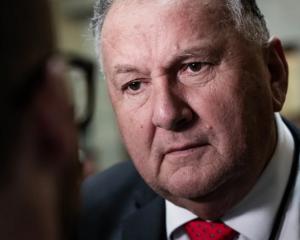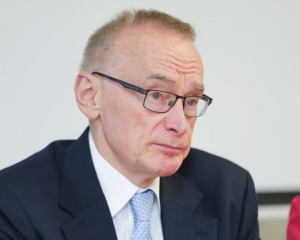Yesterday, Associate Health Minister Peter Dunne said he would push the Psychoactive Substances Bill through Parliament, with the aim of having legislation in place in July.
A spokeswoman for Prime Minister John Key told the Otago Daily Times that efforts to fast-track the Bill had the support of Mr Key and Cabinet.
''The Prime Minister does have concerns around these products, which is why he has supported the Temporary Class Drug Notice regime, which is a temporary measure until legislation is in place.''
Mr Dunne said it was complicated legislation.
''We need to get it right and leave no loopholes for this industry, but we were already pushing this legislation quickly and it is now getting quicker.
''We are fully aware of the concerns of New Zealanders around these products and this industry.''
That concern was noted in a hard-hitting Southern District Health Board (SDHB) submission.
The health board introduced a new security policy for synthetic cannabis users at Dunedin Hospital's emergency department after a security guard was assaulted last October. Following the assault, the hospital deemed that staff must ''call security immediately when a patient presents after consuming synthetic cannabinoids''.
''Emergency department staff are dealing with increasing numbers of patients adversely affected by these products and they have expressed concern about both the short-term and long-term effects of usage,'' the submission noted.
Reported symptoms included hallucinations, agitation, seizures and violent aggression among patients.
The use of synthetic cannabis was also having a ''significant impact'' in mental health wards and was partly to blame for increasing assaults on staff.
''Patients are displaying high levels of aggression after consuming synthetic cannabis.''
Public Health South had received complaints about the products from people in Dunedin, Mosgiel and Oamaru. Some complaints alleged retailers were selling the products to buyers aged under 18.
The SDHB had a responsibility to ''improve, promote and protect the health of people and communities'', the submission noted.
''Given this responsibility, it is important that we speak up in support of the Bill. We would like to express our concern over the degree of harm being caused by psychoactive substances which are currently legal, such as synthetic cannabinoids, among our local communities; and the impact it is having on our health services.''
Labour associate health spokesman Iain Lees-Galloway said while his party was happy with the intent of the Bill, it could have been introduced much sooner.
The Bill would establish a licensing regime for people wanting to manufacture and import the substances, but the Opposition wanted that widened to include those who sold legal highs.
''We also want greater ability for communities to have their say about exactly where the shops that sell legal highs can be placed in their communities.''
Psychoactive Substances Bill
• Would reverse the onus of proof by making all psychoactive substances illegal unless they were proven low risk by the manufacturers.
• The Bill is before the health select committee and is expected to be reported back to Parliament on June 14.
• Submissions on the Bill closed earlier this month with 32 evidence/submissions received, including from the Southern District Health Board, Dunedin City Council, and the New Zealand Police Association.
Source: Parliament












